Fleetguard to the rescue!asavage wrote:SNIP-I don't think that you can avoid external hoses if you want bypass filtration.
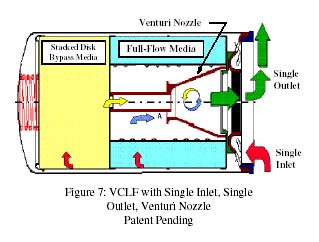
Moderators: plenzen, Nissan_Ranger
Fleetguard to the rescue!asavage wrote:SNIP-I don't think that you can avoid external hoses if you want bypass filtration.

It's shown very clearly.asavage wrote:Fine. Will it fit an SD? And does it work? Usually, you would need a restriction on the flow to the full-flow portion to "encourage" some oil to go through the highly-restrictive bypass media. While the Fleetguard filter may do this, they're not showing it in that cartoon.
philip wrote:It's shown very clearly.


Nah, I've done that. I made what is probably one of only a-few-in-the-world full-flow spin-on oil filter adapter for my '65 190D, back in 1989. Well, I drew up the parts and our job shop did the work.Now putting together the adaptor base required might be a small challenge.
Not on the "first pass." I did on the second pass.asavage wrote:-SNIP- OK, it's shown clearly -- once you know what to look for. Did you?
But of course! Maybe two!asavage wrote: If we continue on this line, we should split this topic out; we've hijacked the thread.

asavage wrote:-SNIP-
Note the fuel preheat wrap, just like Philip's! -SNIP-
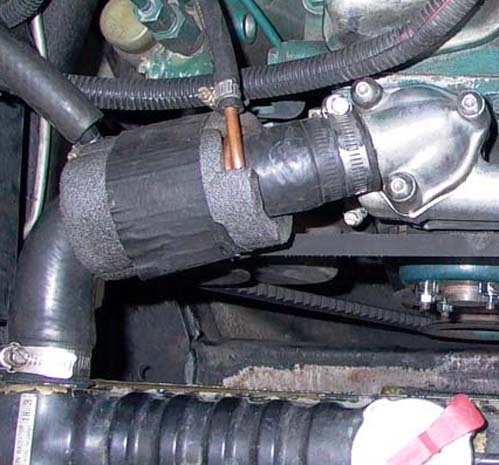
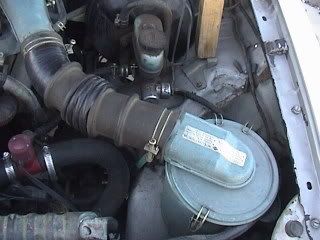
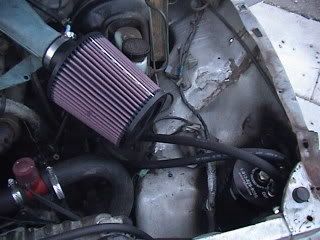
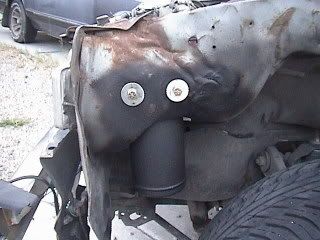
I have a few Qs:TooManyIdeas wrote:I just got done installing the FS2500 on my truck.

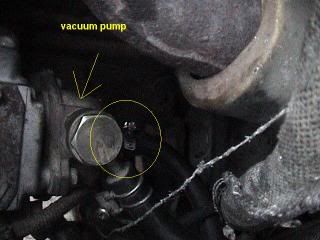
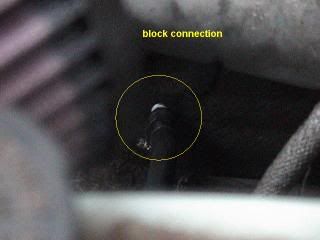
How about running a oil analysis on your trucks -before- ... "stuff"?TooManyIdeas wrote:I just got done installing the FS2500 on my truck. Yes, you have to run more hose but so what. This filter surpasses that fleetguard filter hands down. ... -SNIP-
So ... ?asavage wrote:I'm going to a Motorguard MG-30 and synth oil, and not changing the oil -- ever. With regular analysis, of course.
Also... http://www.bypassfilter.com/faqs.htmRalph Wood wrote:Misinformation
Some filter makers claim their filters can go longer between changes. This is similar to recommending 10,000 mile oil drains. They forget to tell you that your engine will last longer if you change the oil every 3,000 miles as a rule the more effective a filter is and the smaller the filter is the more often it needs to be changed. If you can accept a higher wear rate you can extend your filter change interval longer. If you are wanting a wear rate as near zero as possible with no oil drains you will need a filter that can filter to well below One micron. You will need to change it about every 2,000 for an 8, 3,000 for a 6, and 4,000 for a 4. You may need to adjust that for cold weather, short trips, etc.
If you can find a filter that can filter well under one micron about twice as large you can go twice as far between filter changes without more engine wear. I've used toilet paper filters for 40 years. I'm not paying more money for a less effective filter element. Full flow filters don't count. They remove only large engine damaging abrasives. A good engine has almost no large engine damaging abrasives. They are very close to being useless in a modern engine. ATF filters are even worse.
Channeling
Motor Guard will not "channel". Some filters "channel" due to inconsistency of material such as cotton wastes. For oil to "channel" it must have a preferential route.
The compressed roll of cellulose in Motor Guard does not permit channeling because each sheet of paper is identical. The oil must flow through the entire roll. The impression of the screen on the top of the tissue roll and the "solid" packing gives evidence that there is no channeling.
I copied this from a 1966 Motor Guard technical manual. The screen was eliminated shortly after. It stuck to the TP and got thrown away. channeling is eliminated by high quality TP and tapered housings. It is rare but it can happen with straight housings, poor quality, loose wound TP and large amounts of water.
At work I have TP filters that are used for removing water from the oil. The big stock filters are pretty much useless. Similar to a car only larger. These are air compressors. The diesel engines don't have a water problem caused by condensation.
Be suspicious of filter makers with expensive elements that don't clean oil very well criticizing filters that are economical and very effective. Cellulose is the king of oil and fuel filters. The tighter you pack it the cleaner the oil and fuel. Element is highly concentrated cellulose.
"Cellulose Breaks Down and Plugs the Oil Passages"
I don't know of any cellulose in the world that breaks down in oil. Put oil on paper and you will see it gets stronger in oil. I've used cellulose filters for 40 years, some have used them longer. A well designed cellulose filter may get a few fibers in the oil from sliding the old roll out and sliding a new roll in. I've never worried about it. If I considered it an issue I would do as some do and install a secondary filter. You can get a nipple type inline filter with a sintered bronze element 40 or 90 micron 1/8" pipe to 1/2" pipe from http://www.mcmaster.com catalog #98355k83 for 1/8" pipe for less than $3.00 or you can get a mini inline hydraulic filter less than $22.00 catalog #9800k41 for 1/4" pipe.
The Motor Guard M-30 has 1/4" ports. There is no way I would use a less effective, more expensive element to insure against paper fibers getting in the oil. If you use the Motor Guard with a Perma-Cool.Com sandwich adapter all oil leaving the Motor Guard must go thru the full flow filter to get to the engine. The special Motor Guard high wet strength element model M-723 will work in the oil filters if you remove the 175 degree F rated 1 1/2" ID polyethylene core. I sometimes use them for fuel. They are for critical use where nothing comes out but clean; electronics, medical, compressed air for instrumentation, painting, plazma etching, plazma cutters, etc. A roll of Scott Kimberly Clark will do just fine for me. I will be setting up the fuel filters to take the special M-723 Element. The leak proof core has advantages. They will also take the 1 5/8" 10 Scott Kimberly Clark.
Users browsing this forum: Bing [Bot] and 2 guests